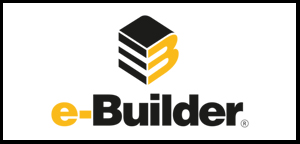UCF Achieves LEED® O+M Campus Credits For Future Certifications
February 27, 2020The University of Central Florida has achieved Leadership in Energy and Environmental Design (LEED®) Campus credits under the Master Site Operations and Maintenance (O+M) v4 rating system established by the U.S. Green Building Council (USGBC) and verified by the Green Building Certification Institute (GBCI). These credits add to the previously awarded Campus credits towards the Building Design and Construction (BD+C) rating system.
LEED® is the preeminent program for the design, construction, maintenance and operations of high-performance green buildings. The Master Site program was sought after in order to demonstrate global compliance to the sustainable practices across the entire main campus, as well as streamline the documentation process for future LEED projects. Contrary to the traditional project by project certification, this approach allows these credits to be awarded automatically to all future LEED projects registered within UCF campus boundary.
The following design credits were achieved or partially achieved, pending project-specific components.
- Sustainable Sites: Site Management Policy – Prerequisite LEED Intent: To preserve ecological integrity and encourage environmentally sensitive site management practices that provide a clean, well-maintained, and safe building exterior while supporting high-performance building operations and integration into the surrounding landscape. Documentation of best management practices via a Site Management Policy was provided.
- Sustainable Sites: Site Development, Protect or Restore Habitat – Full Credit LEED Intent: To conserve existing natural areas and restore damaged areas to provide habitat and promote biodiversity. Documentation showed vegetated space is greater than 30% of total campus hardscape area.
- Sustainable Sites: Rainwater Management – Partial Credit LEED Intent: To reduce runoff volume and improve water quality by replicating the natural hydrology and water balance of the site, based on historical conditions and undeveloped ecosystems in the region. Documentation showed that water is captured and treated for more than 50% of impervious surfaces. Individual projects must include a copy of most recent inspection report and log showing any maintenance within 60 days of inspection to receive the full credit.
- Sustainable Sites: Light Pollution Reduction – Full Credit LEED Intent: To increase night sky access, improve nighttime visibility, and reduce the consequences of development for wildlife and people. Documentation showed that night illumination of campus boundary are less than 20% above illumination with lights off.
- Water Efficiency: Outdoor water use reduction – Prerequisite/Full Credit LEED Intent: To reduce outdoor water consumption. UCF’s landscaping and irrigation systems reduces potable water consumption for irrigation by 100%, except areas near swimming pools and outdoor gardens due to health code regulations. Approximately 175 acres of land are irrigated using reclaimed water.
- Water Efficiency: Cooling tower water use – Full/Partial Credit LEED Intent: To conserve water used for cooling tower makeup while controlling microbes, corrosion, and scale in the condenser water system. Cooling towers, which are an integral part of the chilled water used for high efficient cooling of campus buildings, use a significant amount of water on campus. Calculations were performed to determine the cycles of concentration used for the cooling towers serving UCF’s district chilled water loop and to demonstrate conservation efforts in its cooling tower use. An additional point is available when reclaimed make‐up water is fully integrated at district cooling towers. Currently, reclaimed make-up water is being piloted on one of the ten district cooling towers.
- Materials & Resources: Ongoing Purchasing and Waste Policy – Prerequisite LEED Intent: To reduce the environmental harm from materials purchased, used, and disposed of in the operations within buildings. Facilities & Safety has an ongoing purchasing and waste policy that has been developed and implemented.
- Materials & Resources: Facility Maintenance and Renovation Policy – Prerequisite LEED Intent: To reduce the environmental harms associated with the materials purchased, installed, and disposed of during maintenance and renovation of buildings. Facilities & Safety has a facility maintenance and renovation policy that has been developed and implemented.
- Indoor Environmental Quality: Environmental tobacco smoke control – Prerequisite/Partial Credit LEED Intent: To prevent or minimize exposure of building occupants, indoor surfaces, and ventilation air distribution systems to environmental tobacco smoke. UCF is proud to be Smoke Free. Following its commitment to providing a healthy working and learning environment, the university does not permit smoking anywhere on university owned property. The full credit will be achieved on a per-project basis by providing “No Smoking” signage within 10 feet of all entrances at the existing building pursuing certification.
- Indoor Environmental Quality: Green Cleaning Policy – Prerequisite LEED Intent: To reduce levels of chemical, biological, and particulate contaminants that can compromise air quality, human health, building finishes, building systems, and the environment. UCF employs a Green Housekeeping policy for both internal staff and external vendors covers sustainable cleaning products purchase, hygiene practice, hazardous chemical storage, and training requirements. This policy applies to all cleaning procedures, cleaning material and equipment purchases, and cleaning contractor services that occur inside and on the building site.



